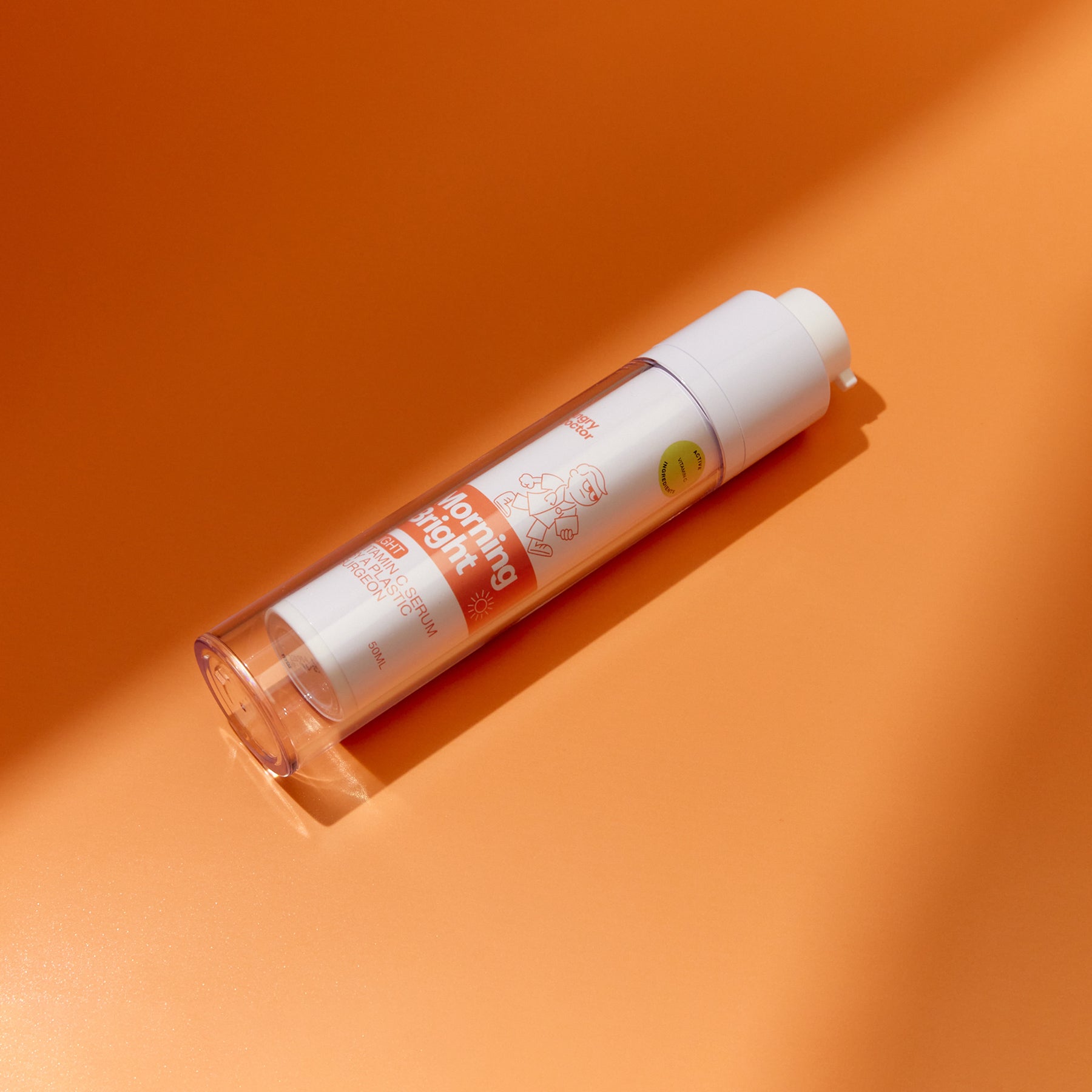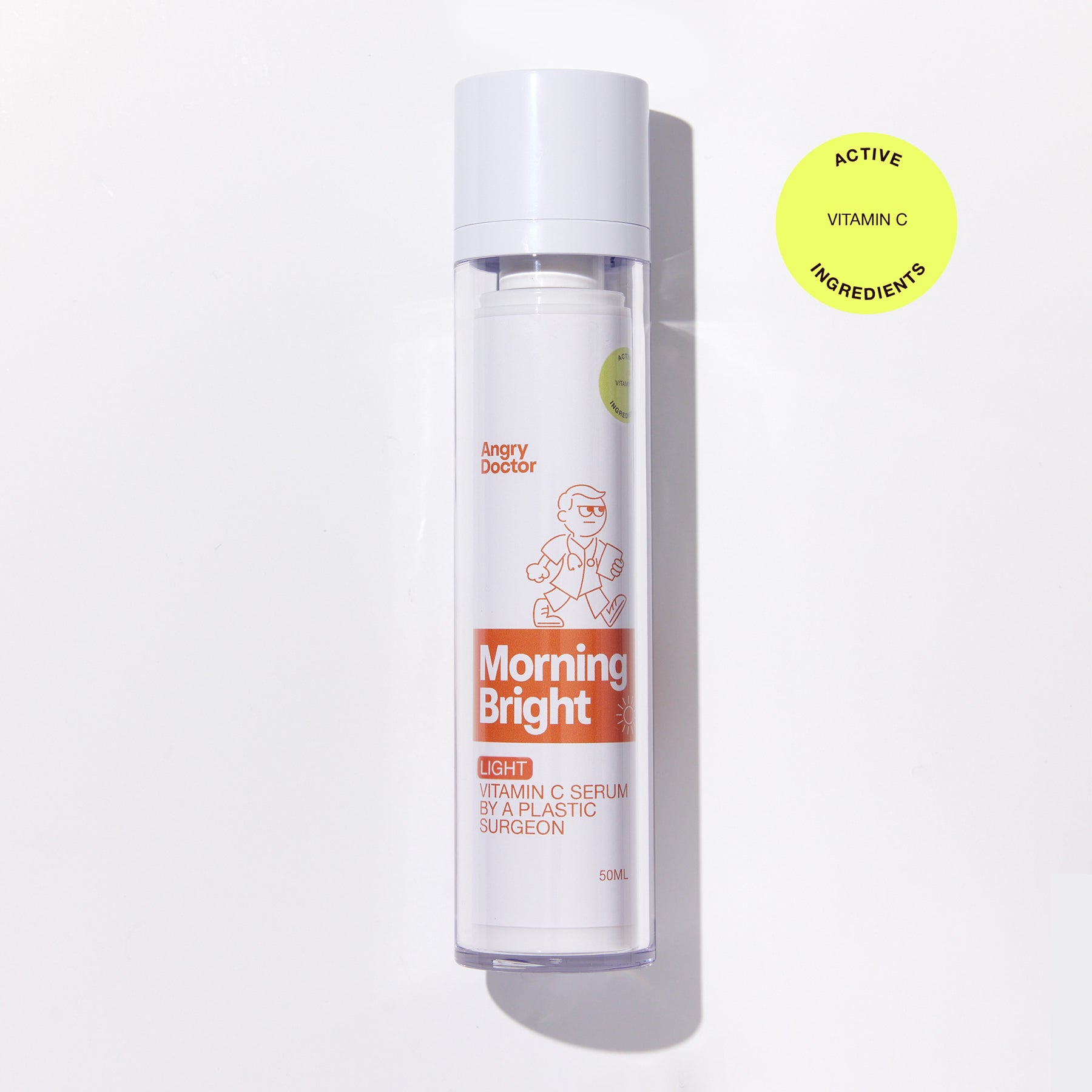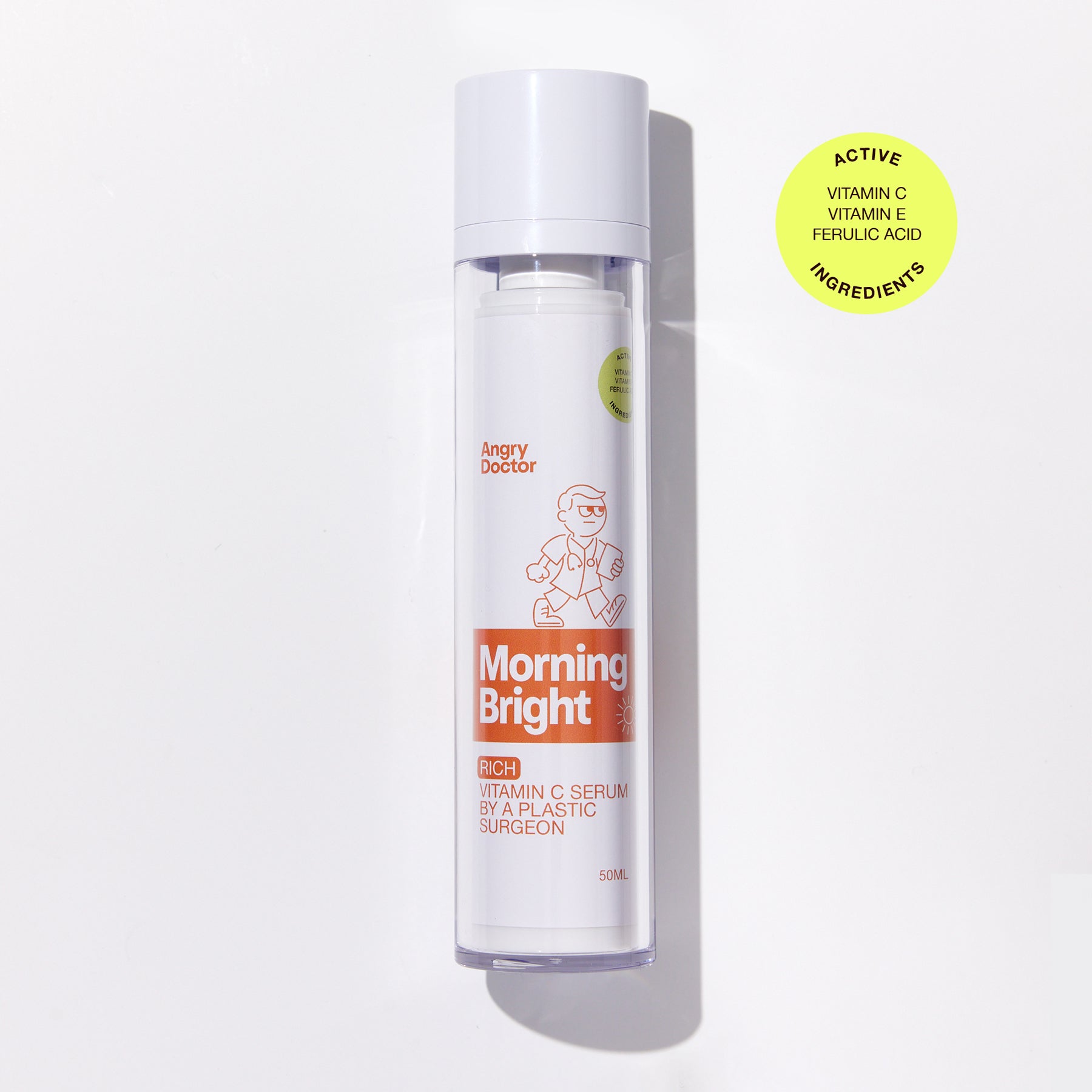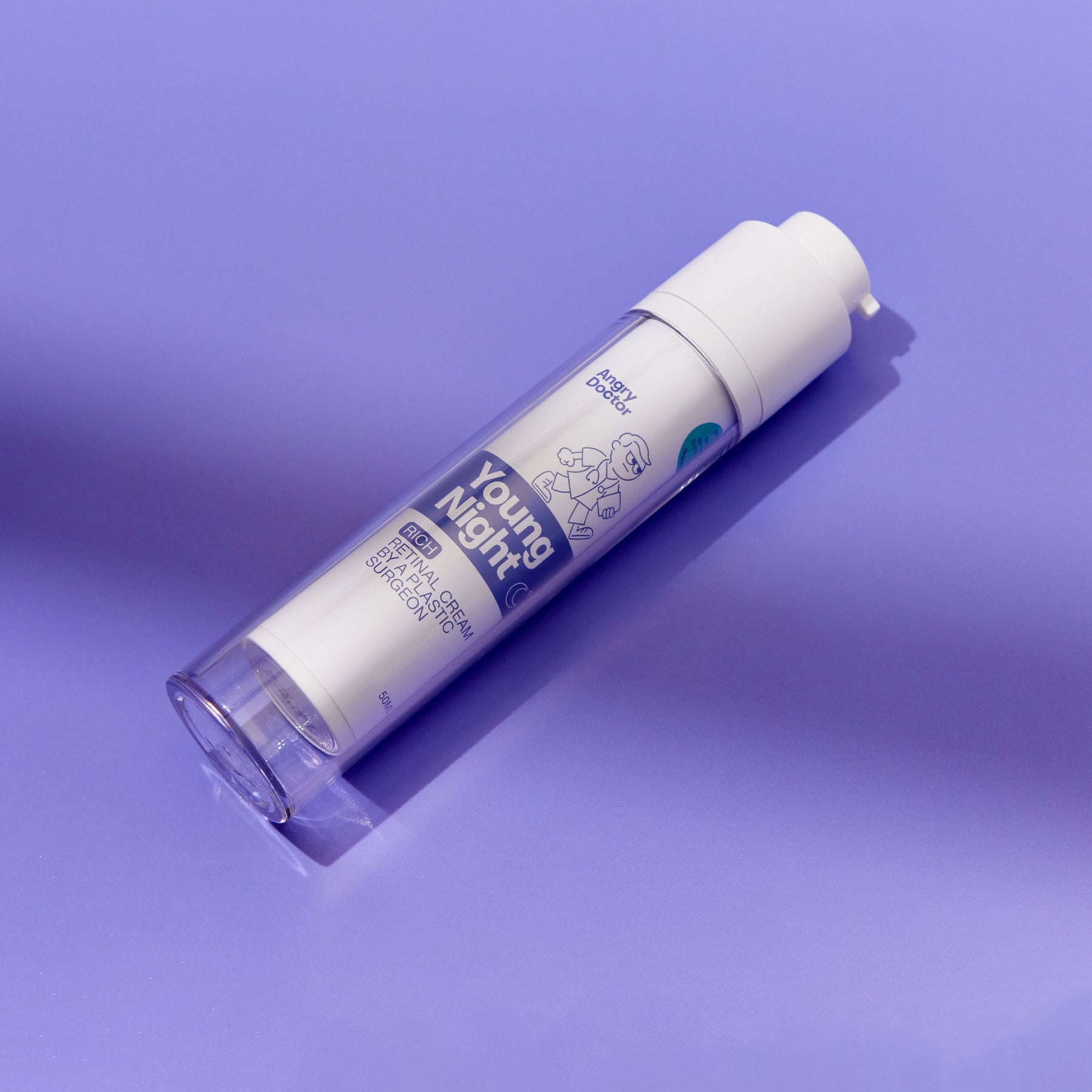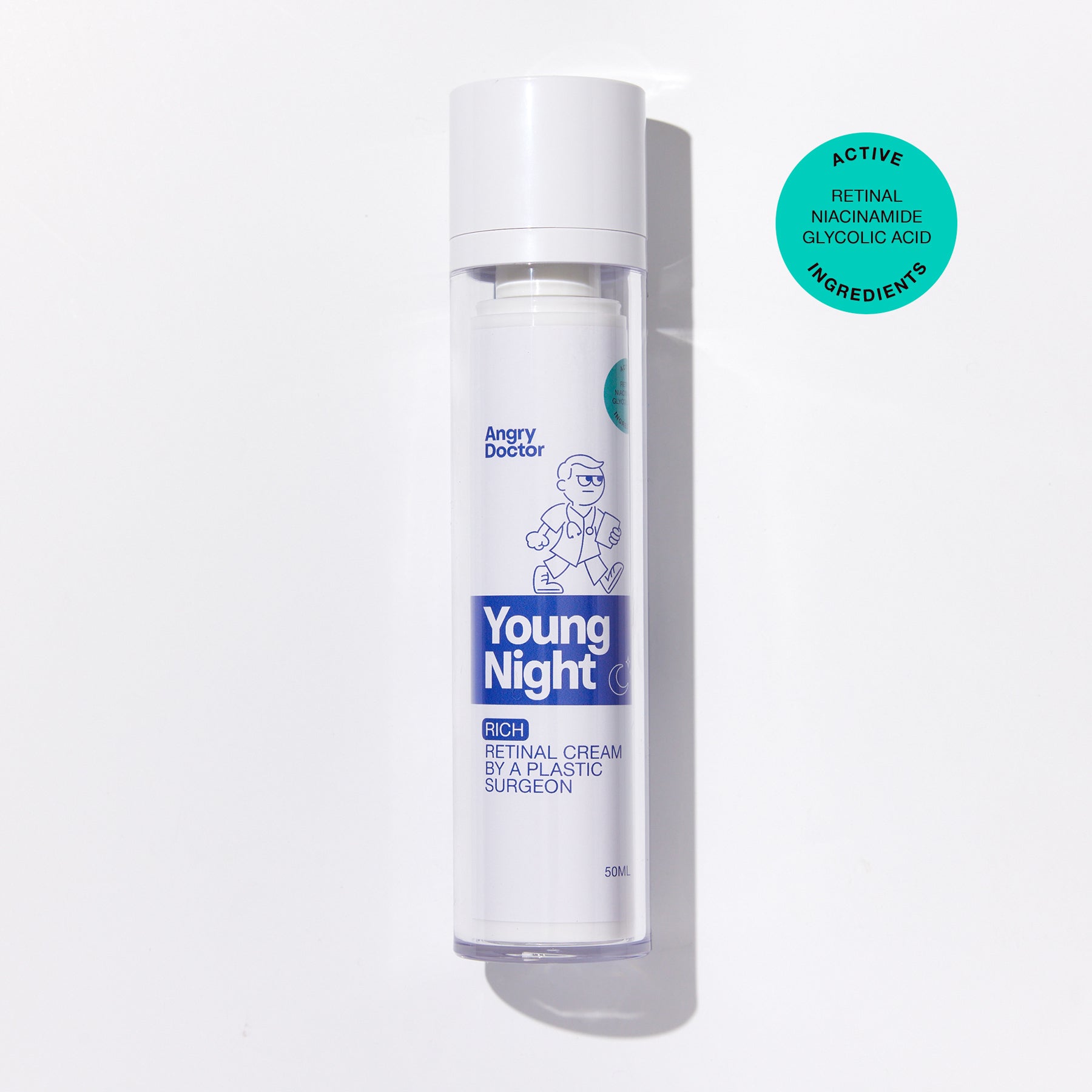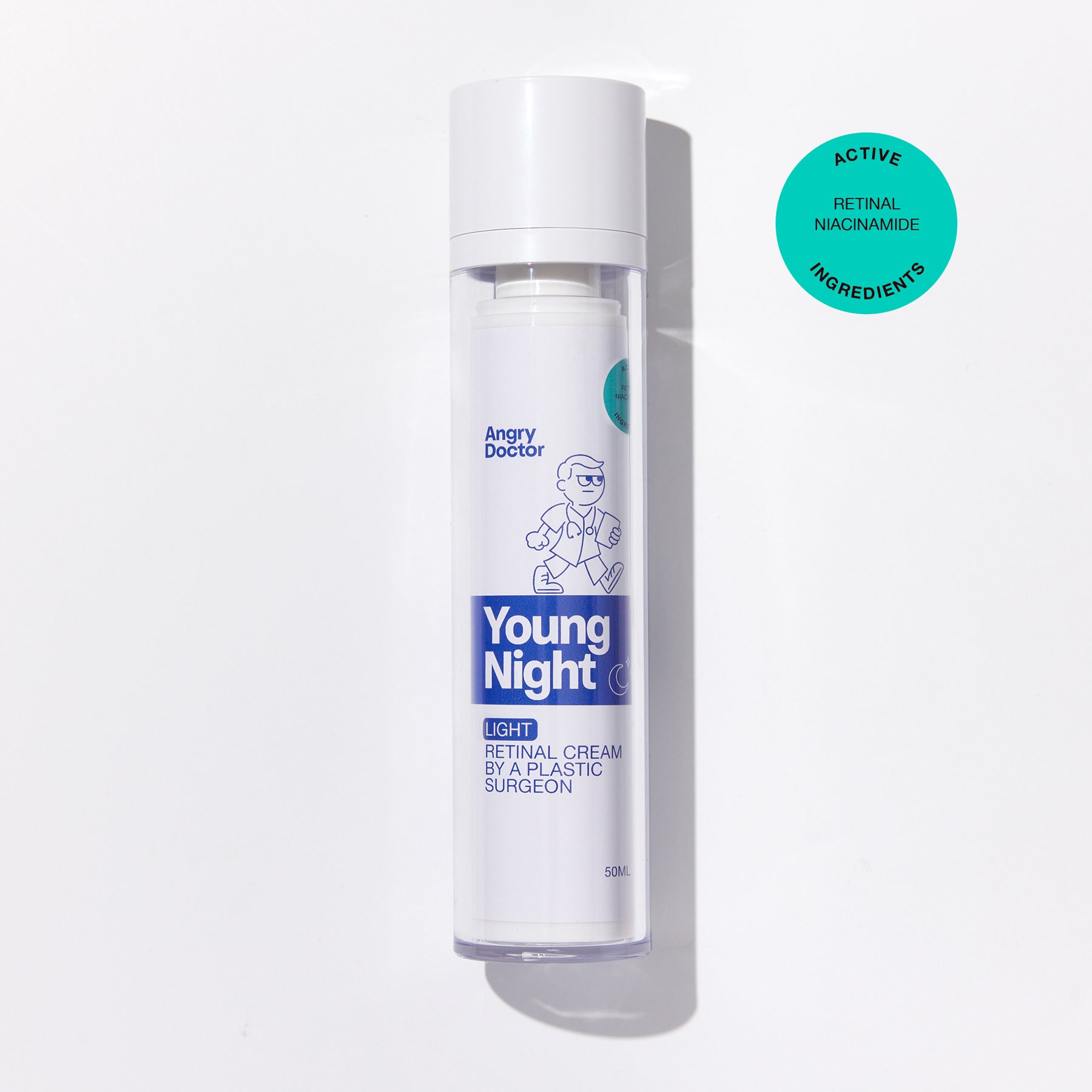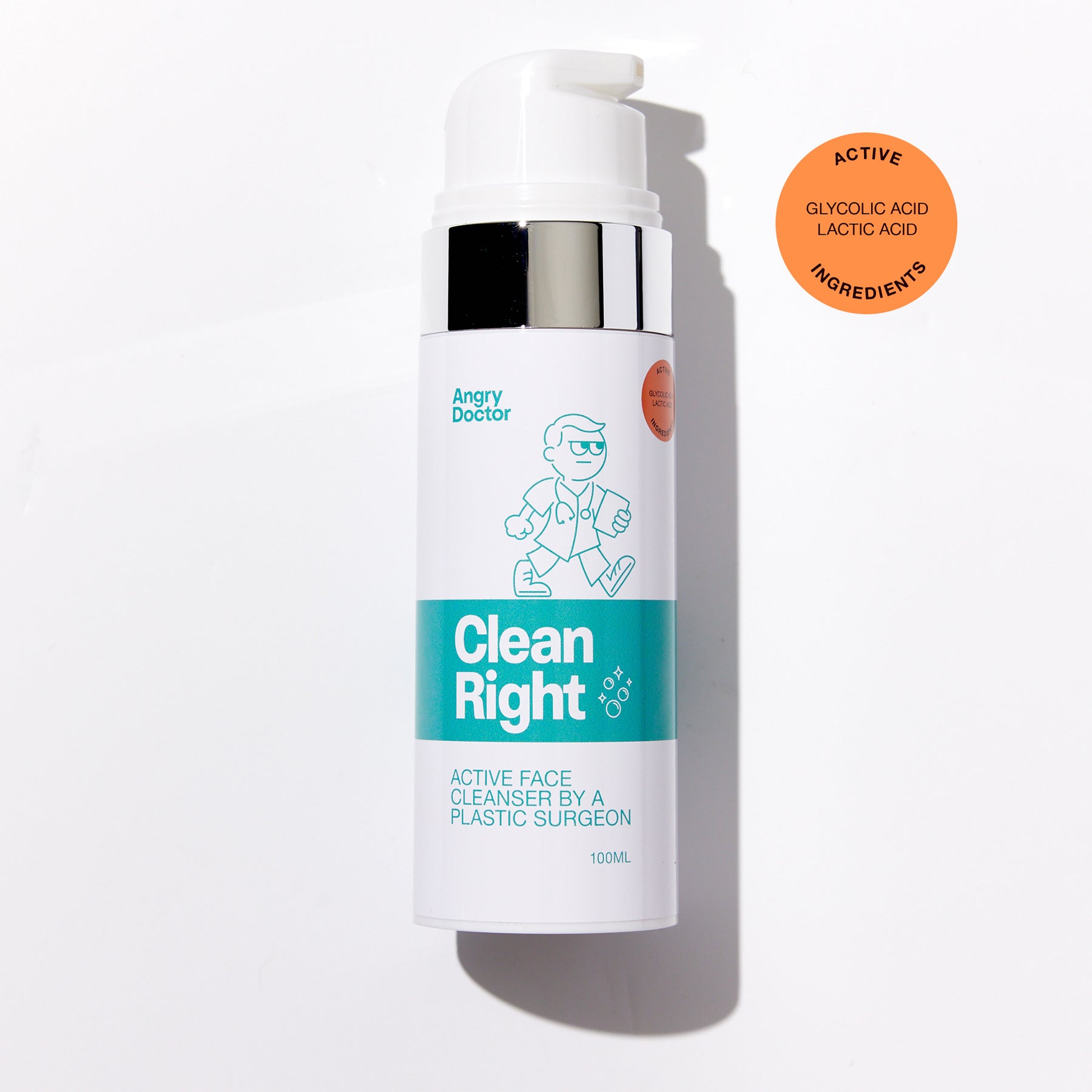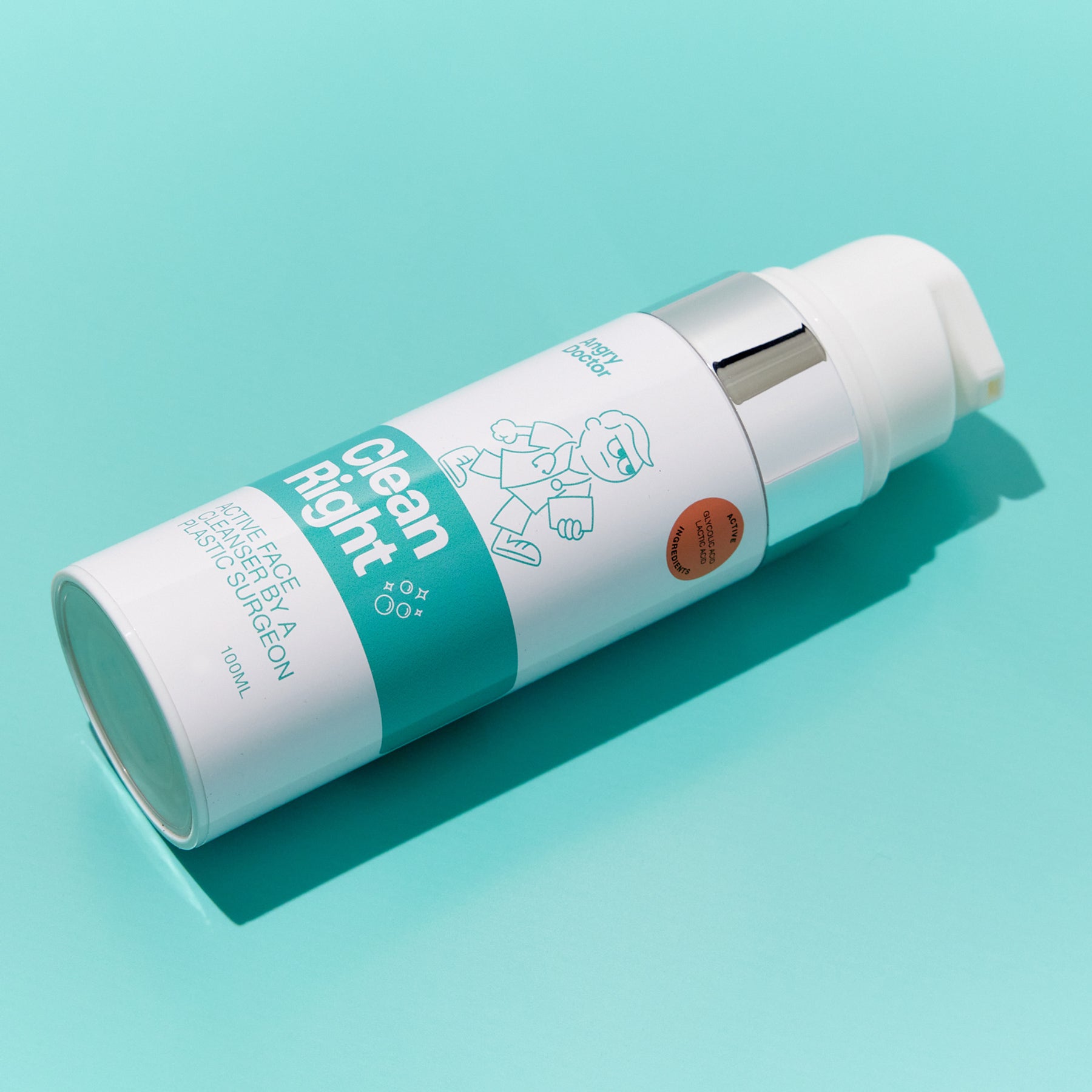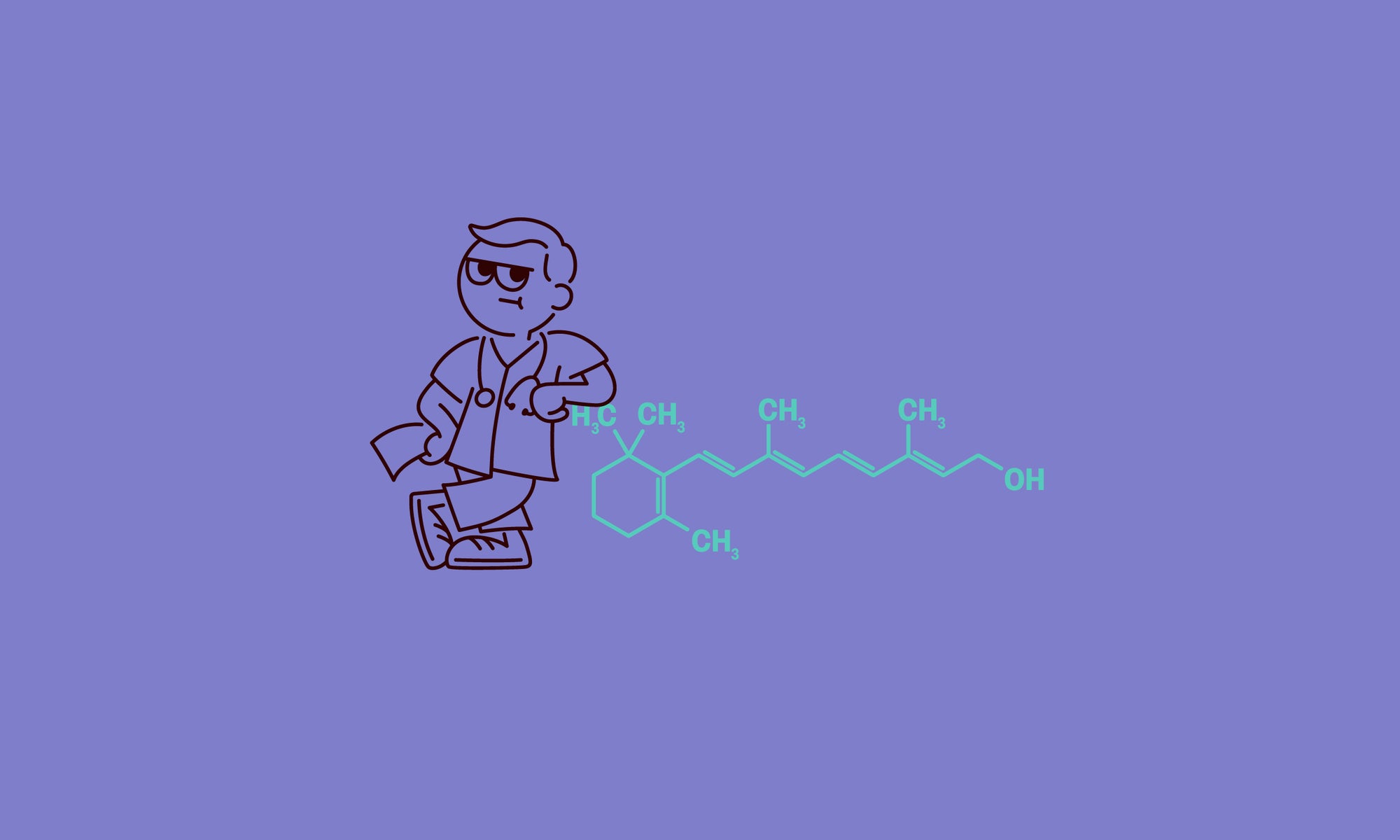

What is retinal? And why should you be putting it on your face?
So, you’re on the journey to taking better care of your skin – that’s bloody great to hear! One of the ways you can do this is by using active skincare, which I bang on about more than I care to admit – BUT, for good reason. Active skincare contains active ingredients – these are molecules that have an effect on the skin cells or structure when applied topically. Basically, if you want to see long-term benefits or changes in your skin, actives are where it’s at – it’s been proven.
This brings me to retinal, the key ingredient you’ll find in my Young Night. Before you ask, no, I didn’t spell retinol incorrectly. Although they sound similar and are both derivatives of vitamin A, retinol and retinal are different – but more on that in a moment.
What is retinal?
To put it simply, retinal is a retinoid. Retinoids are the name given to all vitamin A derivatives. Vitamin A derivatives are very good for our skin cells. They improve cellular function in several ways and reduce inflammation, leading to skin that looks younger, smoother, clearer, brighter, the list goes on… It makes sense that (aside from SPF) topical retinoids are dermatologists’ (and my) top recommendation for better skin. Their ability to dramatically improve the appearance of the skin while altering its function into a healthier state is second to none. You heard it here. We’ll talk a lot about retinal in future blogs.
Retinal vs retinol – what’s the difference?
You may or may not have heard of retinol (one of the more popular retinoids) – it’s an effective anti-ageing ingredient, but I’m here to tell you that retinal appears to be more effective. Why? Retinal is actually a different molecule to retinol – it’s more easily metabolised by your skin, and seems to create less irritation than retinol when used at the same concentration. What does that mean for you? Results (like the younger, brighter, clearer-looking skin I mentioned above) with less of the downsides normally associated with retinol (skin sensitivity, redness, peeling).
What will retinal do for my skin?
What won’t it do?! But seriously, it’s got a laundry list of benefits. Retinal speeds up your skin’s natural cell turnover and increases collagen production (we need all the help we can get in the collagen department as we get older). When someone (read: you) uses retinal, the outer layer of dead skin is sloughed off. This means a younger-looking complexion, sun damage fades and fine lines and wrinkles soften. Not only that, but increased cell turnover means retinal also targets acne and breakouts and can help minimise the appearance of pores.
Why did I choose to use retinal in Young Night?
The word here (and you’re going to hear this word a lot) is bioavailability. No active skincare ingredients (or any other kind of true skin nutrition or medication applied to the skin) work when they’re in the bottle. They only work when they’re in the cell, improving your skin through their molecular actions! Getting the biggest dose of the active molecule into the cell is what it’s all about. I’m a big fan of the bioavailability of retinal – that’s its ability to be effectively absorbed into the skin, with less irritation than its siblings, retinol and retinoic acid. This means that people seeking better skin for life (ie you) are more able to use the product for the long term. And long-term use is where our products do their best work.
Potency is one thing, but usability is actually more important. It’s crucial to use the right molecule in the right formula for a long time – really, for life – if you’re going to maximise the benefit of the active ingredients (and see results). And a product that produces irritation is not going to be used for life - that’s just the truth.
How do you incorporate retinal into your skincare routine?
Easy! Use Young Night. I created this to be a one-and-done retinal product – no multiple steps, no complicated layering or mixing – just apply this, pop on your pyjamas and catch some zzz’s.
What else should you know about retinal?
Whether you’re dealing with breakouts and pigmentation or loss of elasticity and dullness – retinal is going to be a skin game changer. I recommend using SPF during the day while you’re using retinal in your daily skincare routine; the reason being that fresh layer of younger skin can be more sensitive to UV rays – and sunlight decreases the efficacy of the product. I mean, you should be wearing SPF every day regardless. I also recommend not using retinal while you’re pregnant or breastfeeding.
Retinal is one way to achieve better skin for LIFE - but there are a few other factors too.

